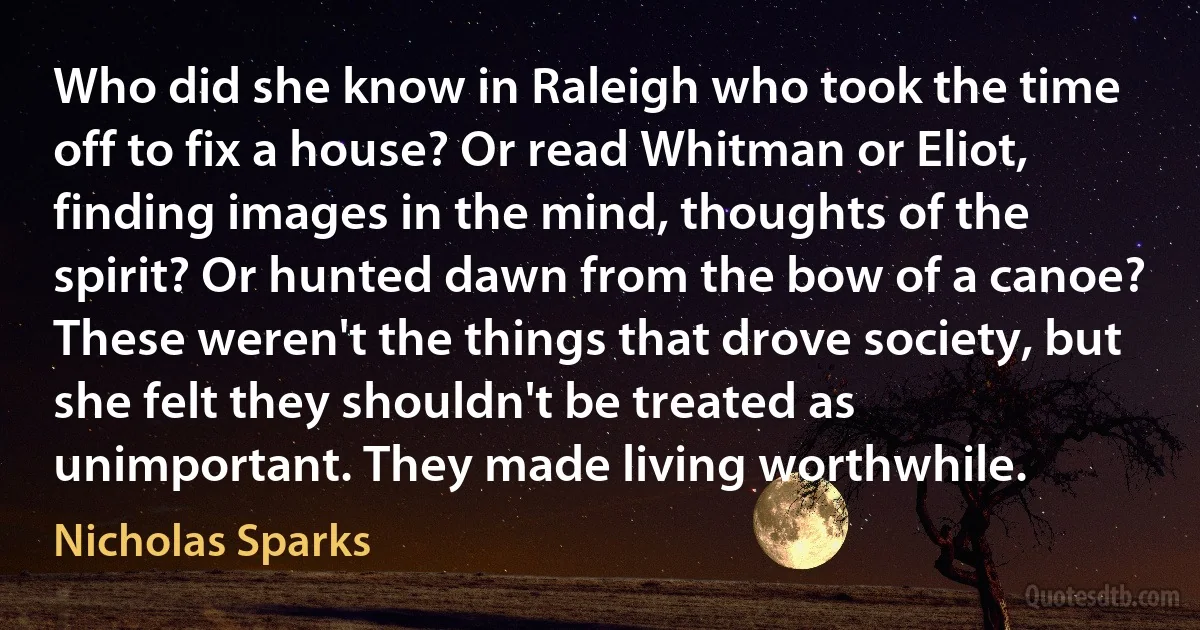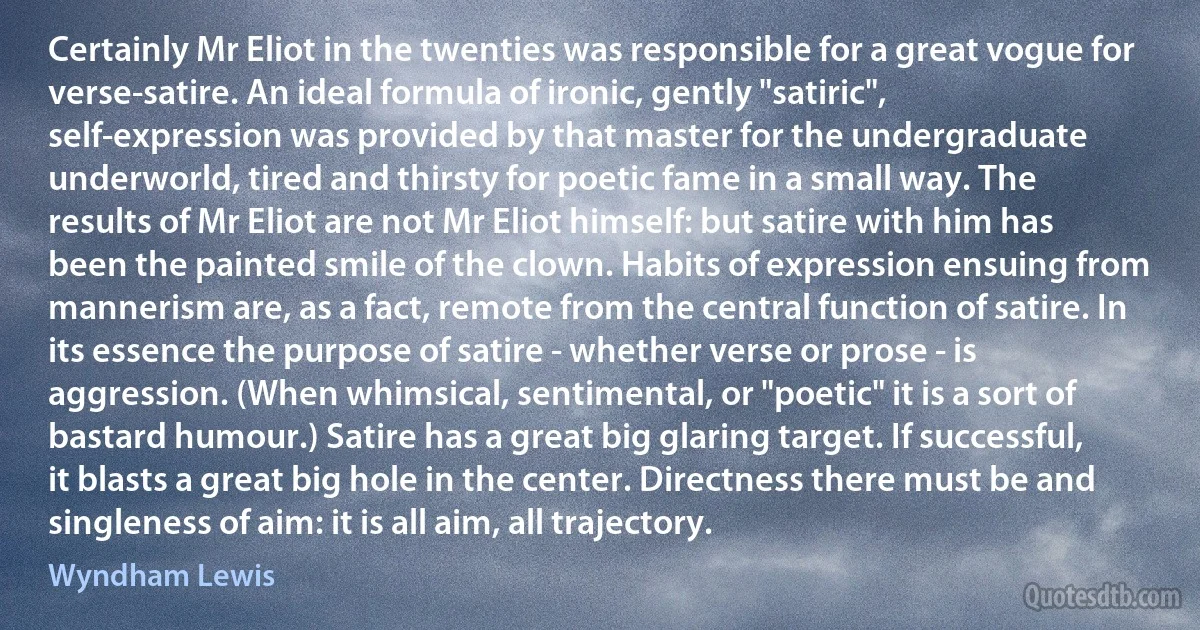Eliot Quotes - page 2
Charlotte Brontë, with all her splendid gift for prose, stumbled and fell with that clumsy weapon in her hands. George Eliot committed atrocities with it that beggar description. Jane Austen looked at it and laughed at it and devised a perfectly natural, shapely sentence proper for her own use and never departed from it. Thus, with less genius for writing than Charlotte Brontë, she got infinitely more said.

Jane Austen
Jane Austen was born before those bonds which (we are told) protected women from truth, were burst by the Brontës or elaborately untied by George Eliot. Yet the fact remains that Jane Austen knew more about men than either of them. Jane Austen may have been protected from truth: but it was precious little of truth that was protected from her.

Jane Austen
The Diary of Vaslav Nijinjsky reaches a limit of sincerity beyond any of the documents that we have referred to on this study. There are other modern works that express the same sense that civilized life is a form of living death; notably the poetry of T. S. Eliot and the novels of Franz Kafka; but there is an element of prophetic denunciation in both, the attitude of healthy men rebuking their sick neighbors. We possess no other record of the Outsider's problems that was written by a man about to be defeated and permanently smashed by those problems.

Colin Wilson
I'm trying to write a book about what it means to be human, to grow up, to suffer and learn. My quarrel with much (not all) fantasy is it has this marvellous toolbox and does nothing with it except construct shoot-em-up games. Why shouldn't a work of fantasy be as truthful and profound about becoming an adult human being as the work of George Eliot or Jane Austen? Well, there are a few fantasies that are. One of them is Paradise Lost.

Philip Pullman
They're often bracketed together, Tolkien and Lewis, which I suppose is fair because they were great friends - both Oxford writers and scholars, both Christians. Tolkien's work has very little of interest in it to a reader of literature, in my opinion. When I think of literature - Dickens, George Eliot, Joseph Conrad - the great novelists found their subject matter in human nature, emotion, in the ways we relate to each other. If that's what Tolkien's up to, he's left out half of it. The books are wholly male-oriented. The entire question of sexual relationships is omitted.

Philip Pullman
I feel enormous joy and exhilaration. This is so different from the poetry world into which I was growing up in the 1940s and 1950s. That was a world dominated by a few major figures, mostly from a certain class and of course male: Pound, Williams, Eliot, Stevens. I was saying to a young man, a poet working here, "Your generation doesn't have to look at the field of poetry as a hierarchy. You can draw from this enormously rich cluster of poetries, and you can enrich yourself from so many kinds that this is a wholly different situation than we had in the 1940s and 1950s."

Adrienne Rich
To me it seems clear that the descriptions of human life we find in the novels of Tolstoy or George Eliot are not mere entertainment; they teach us to perceive what goes on in social and individual life. And such descriptions require the many subtle distinctions that ordinary language has made available to us. The question of the relevance or irrelevance of "how we speak” is not just a question for philosophers, although it is that too. It is a question for philosophers because once ordinary language is laughed out of the room, philosophical theories are no longer held responsible at all to the ways we actually speak and actually live; but it is a question for more than just philosophers because, at bottom, contempt for ordinary language is contempt for all the humanities.

Hilary Putnam


